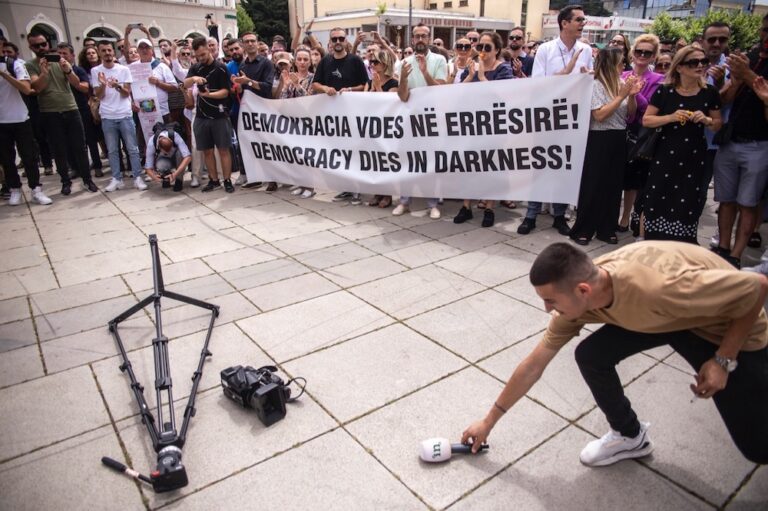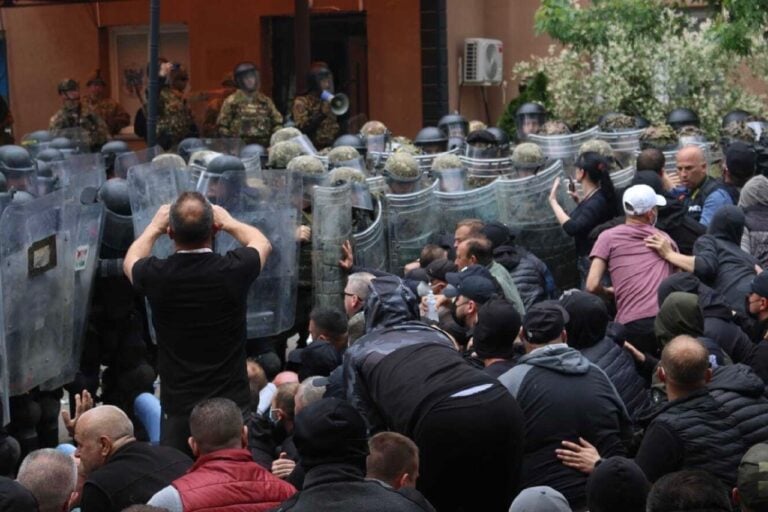"Express", "Koha Ditore" and Koha Vision TV used blown-up photos of text messages on a smartphone screen to show that the US ambassador provided the country's new president with last-minute advice in parliament before a vote that secured him the presidency.
(RSF/IFEX) – Reporters Without Borders deplores US ambassador Christopher Dell’s open letter to Kosovo’s Independent Media Commission on 23 February 2011 criticising “Express”, “Koha Ditore” and Koha Vision TV for using blown-up photos of text messages on a smartphone screen to show that he provided the country’s new president with last-minute advice in parliament before a vote that secured him the presidency.
It was clear from the photos that Dell was advising President Behgjet Pacolli’s aide, Esat Puskar, on how to proceed during a 45-minute break before a third and ultimately successful vote after Pacolli failed to be elected in the first two votes, which the opposition boycotted. If Pacolli had not won the crucial third vote, new parliamentary elections would have been necessary.
“We strongly condemn the way Ambassador Dell demanded ‘in the name of their readers and viewers’ that Koha’s journalists apologize for their behaviour, and questioned their professional ethics,” Reporters Without Borders said. “We are also outraged by his insistence that they violated article 170 of the criminal code, under which anyone publishing wire tap conversations or messages not specifically addressed to them is liable to one year in jail.
“The ambassador’s comments constitute unacceptable harassment of the Kosovar media, which are already harassed by their country’s own leaders and which should be able to count on more active support from a country that is generally appreciated for its commitment to the defence of media freedom.
“The contacts between Kosovo’s future president and the ambassador of a very influential country during a crucial election and at a time of great political tension were clearly a matter of public interest. Reporting them was not in any way illegal. The photos of the text messages visible on the mobile phone screen did not violate the ambassador’s privacy because, as he acknowledged, they were just about political matters. They did, on the other hand, provide legitimate support for the claims the journalists made in their articles.”
( . . .)


